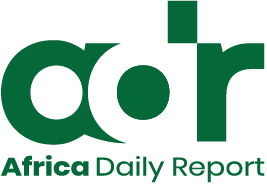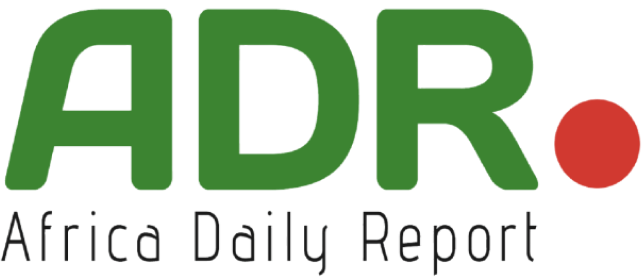Introduction: Is the DRC at a Democratic Crossroads?
The Democratic Republic of Congo (DRC) faces a pivotal decision: should it amend its 2006 Constitution? President Félix Tshisekedi argues that the reform is necessary to adapt the Constitution to national realities, but critics, including opposition leaders and civil society, claim it is a veiled attempt to extend his power. As tensions rise, this debate is testing the country’s institutions, national unity, and, more broadly, its democratic maturity. What is the scope of this proposed reform, and what are its potential impacts on the DRC’s political balance?
A Necessary Revision or a Political Maneuver?
Félix Tshisekedi initiated the debate by criticizing the Constitution as a document “written abroad by foreigners” that no longer aligns with the DRC’s needs. Speaking in Kisangani in October 2024, he announced the creation of a commission of experts in January 2025 to identify the shortcomings of the 2006 text. Tshisekedi insists on holding a referendum to legitimize the process, framing it as a necessary step for national sovereignty.
However, the exact nature of the reform remains unclear: is it a partial revision or a complete overhaul? Supporters like Christophe Mboso (CRD) and Augustin Kabuya (UDPS) have called the current Constitution a “curse” for the country and strongly advocate for change. Meanwhile, key figures in Tshisekedi’s Sacred Union coalition, such as Vital Kamerhe and Jean-Pierre Bemba, have remained conspicuously silent, suggesting potential fractures within the ruling bloc.
The Opposition: An Unprecedented but Fragile Coalition
For the first time in years, prominent opposition leaders such as Moïse Katumbi, Martin Fayulu, Joseph Kabila, and Delly Sesanga have united to challenge the proposed reform. The coalition, “Political and Social Forces Against Dictatorship and Constitutional Change,” formed in November 2024, categorically opposes any modification. They argue that the initiative is a thinly veiled attempt to pave the way for a third presidential term for Tshisekedi.
Delly Sesanga, one of the opposition’s vocal leaders, has accused Tshisekedi of betraying his promises to uphold democratic norms. “Tshisekedi deliberately blurs the lines between revision and constitutional change. We refuse to play along,” Sesanga stated. However, this alliance of convenience could be undermined by internal rivalries and ideological differences, as seen during the fragmented opposition in the 2023 elections.
Civil Society and the Church: Moral and Social Critiques
Beyond political circles, civil society and religious institutions, particularly the Catholic Church, have become key players in the debate. Cardinal Fridolin Ambongo publicly criticized the reform during a sermon to thousands of young people in Kinshasa, condemning it as a distraction from pressing national priorities like education, youth employment, and poverty reduction.
Ambongo’s remarks, echoed by the influential National Episcopal Conference of Congo (Cenco), highlight the disconnect between the government’s agenda and public concerns. Drawing parallels to its role in resisting Joseph Kabila’s attempts at constitutional revision in 2016, the Church could once again mobilize public opinion to challenge the government’s plans.
Legal and Institutional Barriers
A central argument of the opposition lies in the Constitution itself. Article 220 explicitly prohibits amendments to key provisions, including the duration and number of presidential terms and judicial independence. Any attempt to alter these would require drafting an entirely new Constitution, a point that critics have seized upon.
Additionally, the ongoing state of siege in the Ituri and North Kivu provinces presents a legal obstacle to any constitutional amendment. This institutional hurdle, rarely addressed by reform advocates, could become a significant roadblock for Tshisekedi’s initiative.
Historical Context and International Implications
The current debate echoes the events of 2016, when Joseph Kabila attempted to extend his presidency through constitutional changes but was thwarted by mass protests. However, Tshisekedi holds a stronger parliamentary majority and tighter institutional control, which could make the path to reform smoother.
Internationally, the DRC’s partners are closely monitoring the situation. Perceived authoritarian tendencies could jeopardize economic aid and diplomatic relations, potentially isolating Tshisekedi’s government if the reform is seen as undermining democratic principles.
Conclusion: A Democracy Under Pressure
The debate over constitutional reform in the DRC highlights the country’s political and social tensions. It underscores institutional fragility, the ambitions of political elites, and the crucial role of civil society. If Félix Tshisekedi succeeds in pushing through his reform, it could redefine the country’s political landscape—but at what cost?
The fundamental question remains: Is this process genuinely driven by national interest, or is it a strategic power grab? One thing is certain: the Congolese people, often sidelined, must be at the center of this decision, as their democratic future hangs in the balance. Can they still influence the course of events, or will they remain passive spectators?




